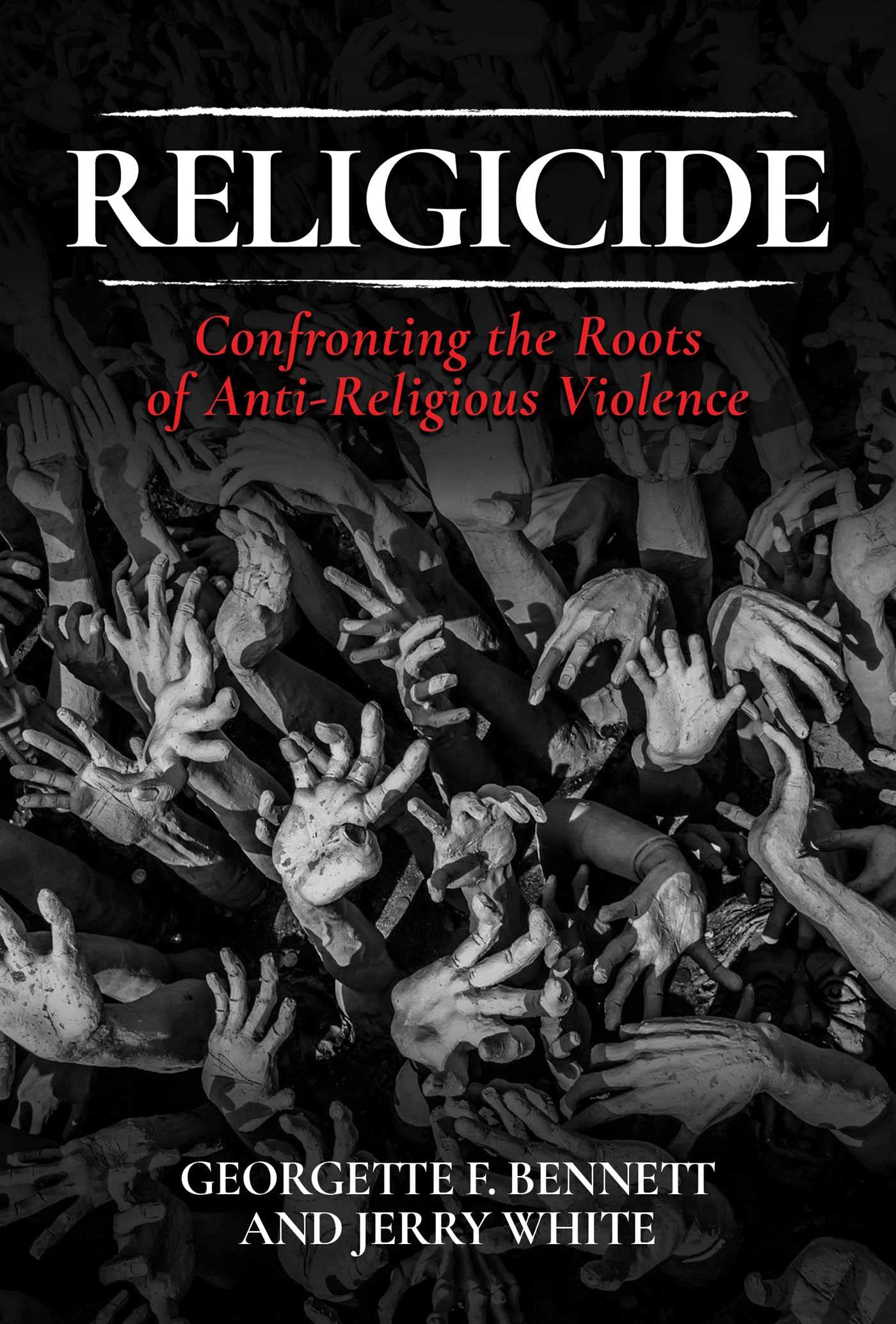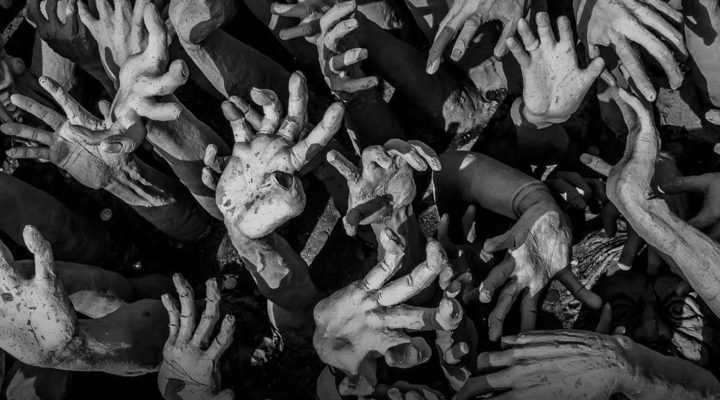Right-wing extremist groups in the United States exhibit the same language and behaviors that have stoked attempts to exterminate entire religions and populations around the world, according to Georgette Bennett, co-author of the new book, Religicide: Confronting the Roots of Anti-Religious Violence.
“Religicide” is a term she and co-author Jerry White use to describe systematic efforts to wipe out specific faith groups and the people who practice them. Those campaigns are typified by the use of apocalyptic rhetoric, attacks on sacred spaces and texts, and a reliance on “facticide,” which is the use of misinformation and disinformation to justify human rights abuses.
Bennett said those impulses can be seen in certain elements of American culture.
“They have all divided the world into the children of light and the children of darkness.”
“If you look at the ultra-right, neo-Nazis, religious nationalists and white supremacists, they’re all using apocalyptic language,” she said. “They have all divided the world into the children of light and the children of darkness.”
Once largely limited to extreme fundamentalists and QAnon conspiracy theorists, rhetoric describing moderate and liberal Americans as “demons” or “children of Satan” has been used by a growing number of conservative politicians and their supporters since the presidency of Donald Trump.

Georgette Bennett
“And what’s ironic is that so many of these groups feel like they are protecting Christianity,” Bennett said. “I don’t know what version of the New Testament and the Gospels they have read, but the views they espouse don’t sound to me like anything Jesus was teaching.”
Budding hate movements are emerging in other nations, too, she added. “We also see this happening right now in India with Hindu nationalism. If you look at the language being used to dehumanize the Muslims in India, it’s possible we are seeing an early warning of an impending religicide.”
While the term is new, religicide itself is not. High-profile instances include the Holocaust during World War II; U.S., Canadian and other colonial powers’ efforts to eradicate indigenous people and faiths; the Armenian genocide by Turkey; Serbian atrocities against Bosnians, the ISIS terror movement’s persecution of the Yazidis in Iraq; the Chinese government’s oppression of Uyghur Muslims; and the Buddhist-led massacre of Rohingya Muslims in Burma.
“We wanted a term that names something that has been unnamed, unprosecuted and unabated and which has fallen between cracks of international law,” she said.
But the signs are all too frighteningly clear as burgeoning religicide movements start with “the weaponization of language through hate speech from which the next step is violence,” Bennett explained.
Hate speech often emanates from perceived existential threats to a nation or the world.
“Group narcissism is the belief that one’s own group holds a monopoly on truth.”
“A lot of it begins in apocalyptic thinking and what we call group narcissism, which is the belief that one’s own group holds a monopoly on truth,” she said. “Once you start down that road, that’s where you are dividing the world into the children of light and the children of darkness. That’s when dehumanizing and demonizing hate speech begins to kick in. Once you have dehumanized the object of your hatred, it is very easy to think of them as vermin that need to be squashed.”
Another tactic used by these movements is to cast the victims as perpetrators, Bennett said. “We saw this in the Armenian genocide, in the Rwandan genocide and in Bosnia. And they always justify their actions by saying they were doing a favor to humanity by getting rid of these people.”
“You can also find roots of religicide in various social movements that predispose people to give up their own identities to become part of a mass movement, and in these cases, very destructive mass movements.”
Animosity toward Jewish people and Judaism is another predictor of religicide, Bennett said. “Antisemitism is the oldest and one of the most irrational hatreds. Jews are the canary in the coal mine because if one tolerates antisemitism and physical attacks on Jews, it means there is permission to attack any other group.”
“Antisemitism is the oldest and one of the most irrational hatreds.”
One of the purposes of writing Religicide was to foster grassroots opposition to such movements because international law is largely incapable of offering adequate interventions, Bennett added. “There is a principle in international law that the sovereignty of states supersedes the protection of people who live in those states, so until atrocities spill over into a neighboring state, under international law you can’t intervene.”
 In their book, Bennett and White suggest “bottom up” and “middle out” approaches to prevent or stop religicide.
In their book, Bennett and White suggest “bottom up” and “middle out” approaches to prevent or stop religicide.
“‘Bottom up’ is listening to the voices of the victims and amplifying those voices and telling their stories and being guided by them in how to respond. And it refers to grassroots mobilization,” she said.
“Middle out” refers to putting pressure on businesses and corporations that operate in countries engaged in oppression, including those that benefit from slave labor in China to manufacture products sold in Western nations.
Faith leaders also have a large responsibility to act “because so much of the justification for religicide comes out of toxic religious texts,” Bennett said. “Every one of the great religions has problematic texts that are used to justify violence. It is incumbent on religious leaders to interpret those text within the context of their traditions to help people understand them and move to core universalistic aspects of their religion.”
The interfaith movement can be another key tool in the opposition of religicide and genocide, she said. That was evident in the wake of the 2018 Pittsburgh synagogue shooting that killed 11 and wounded six. “You saw communities coming together across religious lines in support of the victims.”
Related articles:
Antisemitism is rampant in America: Will churches be silent? | Opinion by Bill Leonard
‘For fear of the Jews’: Confronting Christian anti-Semitism | Opinion by Greg Garrett
At this conference, religious minorities told each other’s stories of persecution


